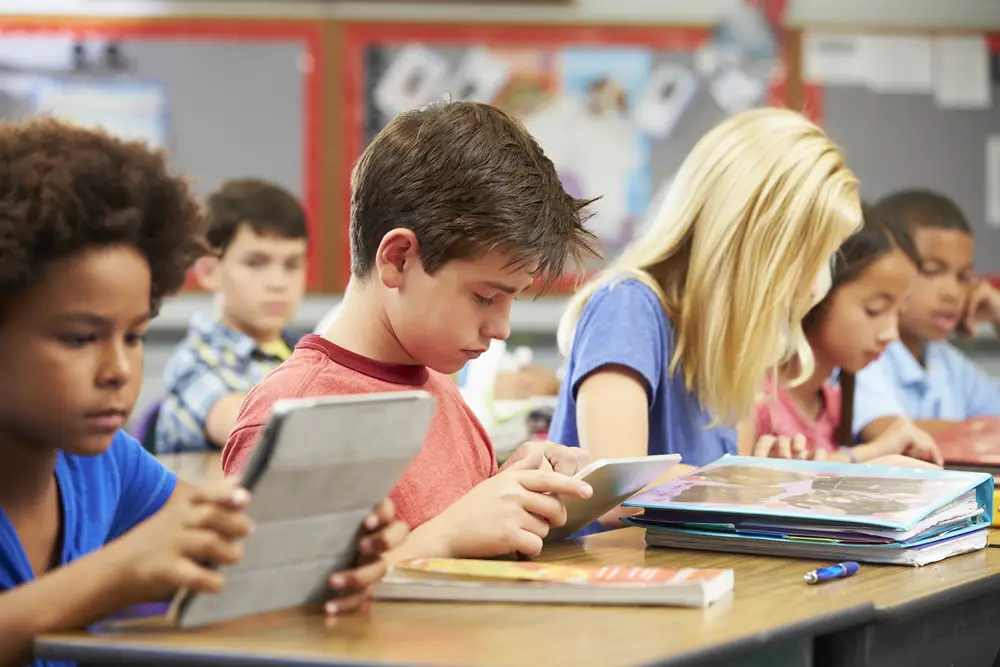6 Ways To Improve Children’s Learning Skills Outside School
Your children’s education should be more than getting straight A’s or enhancing their memorization skills. Education isn’t only limited inside the school premises. Instead, their learning must also continue even outside the classroom. You can motivate your child to keep learning everywhere, everyday. It’s a lifetime pursuit that continues even when they’re older.
Learning skills are practices one can utilize to be successful in life. But how can you foster the importance of learning so children embrace it with a positive attitude? To get started, here are six ways you can help improve your children’s learning skills outside the school:
Feed Curiosity Through Sunday School
You can encourage your kids to participate in Sunday school sessions during the weekend. Sunday school is full of unique stories that pique most children’s curiosity, a factor in enhancing their creative skills. They will be introduced to Sunday school teaching materials that they wouldn’t normally see in their regular school. Examples are worship storybooks, mystery puzzles, and temple crafts.
The more children are exposed to storytelling, the more they develop their imagination and creativity.
Hit Multiple Learning Skills With Baseball
Starting at age seven, your kids can be signed up for your neighborhood’s baseball program. This is a great sport to help kids improve their motor skills while get much needed exercise. But it doesn’t end there. Baseball touches a lot of life skills and learning skills including teamwork, situation analysis (assessing challenges and opportunities in the field), and decision-making (whether or not to commit interference).
Strategy development (researching and analyzing for potential ways to win in future matches) can be introduced to children who’s inclined to watch footages of their game play. This can also be applied to other team sports your kiddos are interested in, such as basketball, soccer, and hockey.
Moreover, focus can be largely improved if your kid practices hitting a target during this fun activity. A simple pitching net could help them work on their precision and concentration a lot. You can even mark it with colors and set a challenging game of earning points. This will further motivate them to improve their skills and have fun at the same time.
Organize A Day For A Food Factory Tour
If there’s a food factory nearby, and if they conduct tours to their production facility, grab the chance to visit. Kids will love candy and chocolate factories, but you can also consider tours offered by makers of other food products. Factories have equipment and setup that kids don’t typically see. And when they get to see how the chocolates are made, with precision, timing, and speed, they are indirectly introduced to a handful of organizational skills.
Organizational skills are habits that make one’s performance of tasks effective and efficient. The concept may still be very new to children but watching the systematic production at work at the factories may give them insights into many components of this skill set. Example components are time management (prioritizing activities), schedule planning (putting tasks in the most practical sequence possible), and productivity (getting things done).
Solve Puzzles At A Toy Convention
Did you like playing with interlocking plastic bricks as a child? Your kids may do, too! If there is a major convention or even just a private fair of this particular toy in your area, you can definitely head out there with the whole family. Building blocks and bricks teaches a couple of learning skills to children.
Creative abilities they can enhance are problem-solving, innovation, open-mindedness, and repurposing (coming up with many uses of a particular thing). Critical thinking skills they’ll start applying can be paying attention to detail and thinking analytically. By teaching them these 21st century skill sets, you can put them on a path to becoming sought-after professionals when they become adults.
Find Meaning In Pet Shops And Volunteer Work
Put a cat in a child’s arms and watch that kiddo’s face light up. A dog can have the same effect. Bringing your children to the nearby pet shop can strengthen your kids’ connection to others. The same can be said about volunteer work. Look up age-appropriate volunteer programs in your area.
Examples are cleaning up around the neighborhood, supervised working at soup kitchens, homeless shelters, and animal sanctuaries, and teaching other children if your kiddo is academically inclined. Allowing your kids to have these experiences early on will reinforce their communication skills, two of which are empathy and respect. Aside from these, working with their peers and adults teaches them reliability, task delegation, and engagement. These are significant collaboration skills they can continue to train in themselves as they grow to adulthood.
Gaining Higher Order Thinking Skills At The Library
A child comes out to this world, and they start to have unique personalities. If your elementary schooler is the reading type, spend time with them at the library. They’ll feel quite at home in the quietude of its halls. Let them go to the books they’re interested in, with your supervision, of course. Pick something you like, too, so you can sit beside them while both of you silently read on your own. Or read the same book softly together, if possible.
Reading at a young age gives a lot of benefits not only in terms of expanding your kiddo’s vocabulary, diction, and perspective, but also in higher order thinking skills. Examples of components within this latter skill set are critical thinking (questioning the truth of concepts), inferencing (using reason to get to conclusions), and evaluation (testing the credibility of claims). All are important learning skills.
The Takeaway
Learning is a never-ending journey, and it’s something everyone should do. With these tips, you can create an environment that will stimulate your children to keep learning and stay curious.




